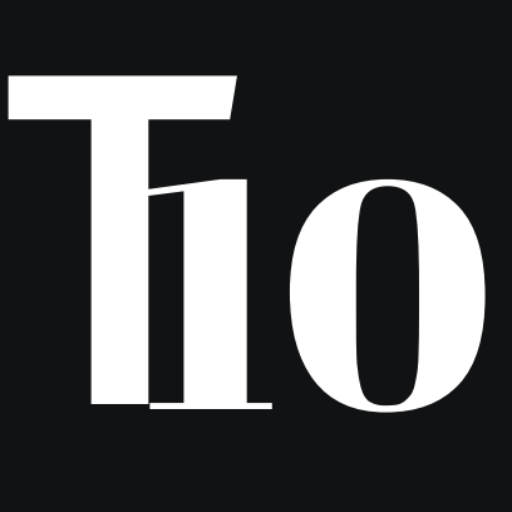When it comes to food items, different countries have different regulations and laws in place to protect their citizens from potentially harmful ingredients. Unfortunately, some of the most beloved American food items are among those that have been banned in other countries. From sugary soft drinks to certain beef products, here are some of the American foods that have been deemed unfit for consumption abroad.
10- Mountain Dew
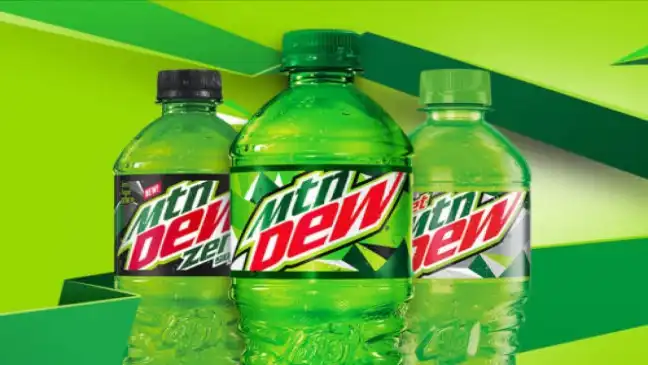
Americans love their Mountain Dew — but not everyone around the world shares the same enthusiasm. Mountain Dew, a carbonated soft drink that is popular in the United States, is actually banned in several countries for a variety of reasons.
Mountain Dew is believed to have originated in the 1940s in Tennessee and is currently produced by PepsiCo. The iconic drink has a unique flavor, which is a combination of citrus, lemon-lime and sweeteners. Mountain Dew has a history of being linked to controversy, particularly in terms of its health effects. In some countries, this has led to a ban on its sale.
Japan has banned Mountain Dew due to its use of brominated vegetable oil (BVO). BVO is an emulsifier that is used to help keep the flavorings and colorings in the drink. It is the same type of emulsifier used in many other drinks and food products around the world. However, Japan and the European Union have banned the use of BVO due to its potential health risks.
Studies have shown that BVO can accumulate in body fat and lead to a number of health issues. It has also been linked to thyroid problems, reproductive issues and neurological disorders. While the FDA allows BVO to be used in small amounts, Japan and the EU decided that it’s not worth the risk.
9- Packed Mac & Cheese
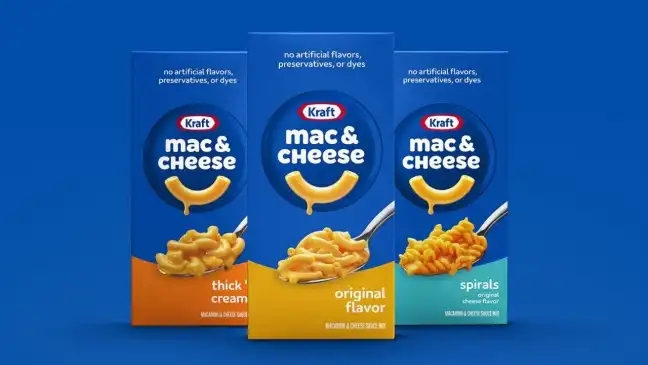
Many Americans take for granted the convenience and ubiquity of macaroni and cheese. However, there are some countries around the world where this beloved comfort food is strictly forbidden!
The United States is known for its wide variety of food choices, but it’s not always welcome elsewhere. For example, in Europe, many countries have placed a ban on the production of certain macaroni and cheese. This is because of the presence of certain preservatives and artificial colors in the food that are deemed unsafe for consumption.
In other countries, the ban on macaroni and cheese is due to the presence of certain animal products in the dish. For instance, in India, the importation of dairy products is strictly prohibited. This means that the classic American dish of macaroni and cheese is off limits in the country.
8- Pork
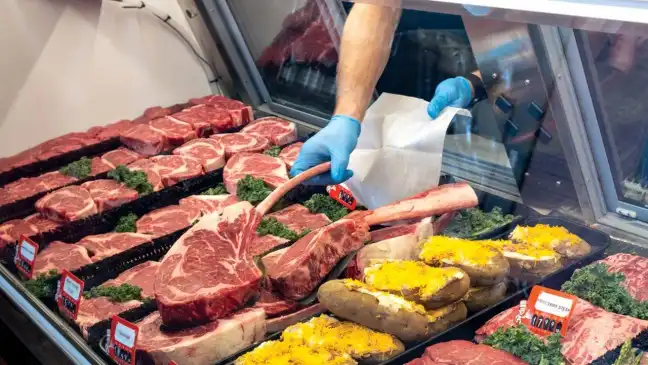
It is no secret that pork is one of the most popular meats in the world. It is a staple in many cuisines and cultures, and it is enjoyed by billions of people around the world. Unfortunately, not all countries are as welcoming to pork as others. In fact, some countries have gone so far as to ban the consumption of pork, making it illegal for citizens to eat or even possess it.
The main reason why pork is banned in certain countries is due to religious beliefs. For example, in Muslim countries such as Saudi Arabia and Iran, pork is strictly forbidden as it is considered haram, or forbidden, in the Islamic faith. In Judaism, pork is also forbidden, as it is considered unclean. Even in countries where pork is not banned, there are often restrictions on where and when it can be consumed.
In addition to religious reasons, there are other reasons why pork is banned in certain countries. For instance, in some parts of Africa and Southeast Asia, pork is forbidden due to concerns about food safety and hygiene. In these areas, pigs are often kept in unsanitary conditions and may be a potential source of disease. In other countries, such as China and Japan, pork is banned due to its high-fat content and concerns about its health effects.
7- Froot Loops
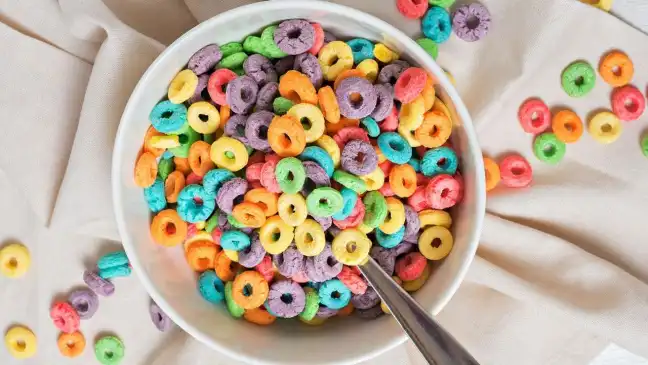
Froot Loops is an iconic cereal that has been a childhood favorite for generations. As a kid, you may have loved the sugary sweet taste of the multi-colored cereal and the fun cereal box that you could make into a puppet. As an adult, you may take a more critical eye towards the cereal, as many people believe it to be a low-quality, overly processed food.
Despite its popularity in America, Froot Loops is banned in other countries due to its high sugar content. In 2013, the European Union passed a law that limited the amount of artificial food dyes allowed in food products. Since Froot Loops contains high levels of artificial dyes, it was banned in most EU countries.
In addition to its artificial dyes, Froot Loops has a high sugar content, which is also a concern for public health. In fact, a single serving of the cereal contains more sugar than three Hershey’s Kisses
6- Apples

While apples may be a staple of the American diet, this popular fruit is actually banned in some countries. In 2012, the European Union prohibited the import of apples from the United States due to fears that they may contain a potentially harmful chemical. The European Union’s Scientific Committee on Food found that the chemical, diphenylamine (DPA), was present in some American apples at levels that could damage human health.
The chemical, which is used to prevent apples from turning brown after harvesting, is not approved for use in the EU. As a result, the European Commission restricted the import of American apples to prevent the potential risk to human health.
The ban was not without controversy, as many American apple growers argued that the levels of DPA in their apples were not high enough to be dangerous. They argued that the ban was motivated more by politics than health concerns and that the risk posed by the chemical was minimal.
5- Swiss Rolls
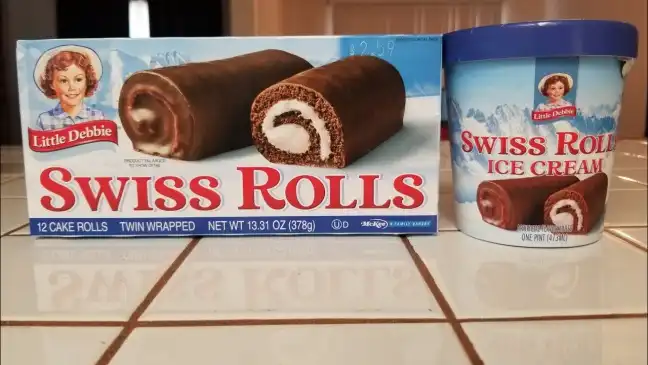
One of the most controversial American foods is the Swiss Roll. This classic American dessert is made from layers of sponge cake and creamy filling, and is often topped with powdered sugar or chocolate. While it may sound like a delicious treat, many countries have decided to ban Swiss Rolls due to their high sugar content.
In some countries, like China, the Swiss Roll has been banned as a health hazard. The Chinese government has deemed the pastry too unhealthy for their citizens, citing its high sugar Colour dye as a major factor. Other countries, such as Singapore and South Korea, have also placed restrictions on the sale of Swiss Rolls.
The Swiss Roll’s unhealthy reputation doesn’t end there. In the United Kingdom, the Swiss Roll has been banned from schools due to its artificial food color dyes yellow 5 and red 40, which are considered to be carcinogenic. The UK Department of Education has stated that the Swiss Roll should not be served in schools in order to protect the health and well-being of students.
4- Breakfast Cereals
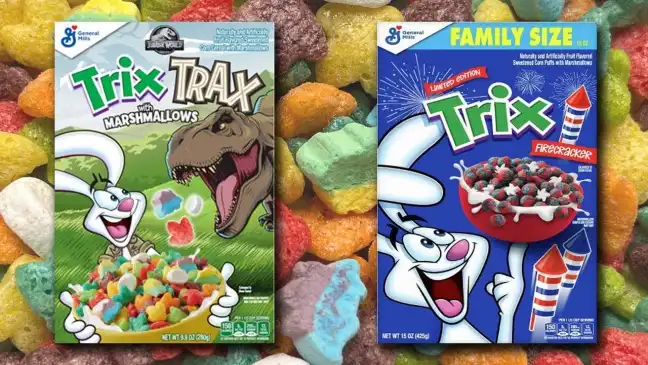
Breakfast cereals are a staple of the American diet, but many of these beloved products are banned in other countries due to their high sugar content and/or artificial ingredients. While these restrictions vary from country to country, there are a few cereals that are universally off-limits.
Kellogg’s Frosted Flakes, for example, are banned in Austria, Bulgaria, and the United Kingdom due to their high sugar content. Cereal is also prohibited in South Korea due to its artificial ingredients, including artificial food dyes. Kellogg’s Cocoa Krispies is also off-limits in Austria, Bulgaria, and the United Kingdom due to its high sugar content. The cereal is also prohibited in Germany, France, Denmark, and Sweden due to its artificial ingredients, which include artificial flavors and food dyes.
Another popular cereal, General Mills’ Trix, is banned in Germany, France, Denmark, and Sweden due to its artificial ingredients, including artificial flavors, food dyes, and preservatives. General Mills’ Lucky Charms is also prohibited in Germany, France, Denmark, and Sweden due to its artificial ingredients, which include artificial flavors, food dyes, and preservatives.
3- Packed Ground Beef
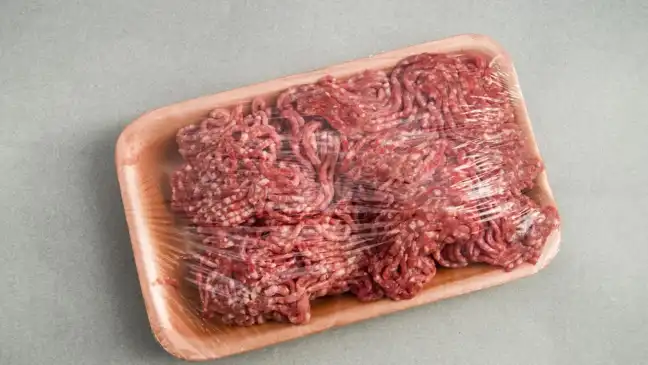
Photo Credit : The Counter
When it comes to the topic of American food being banned in other countries, one of the most commonly discussed items is packed ground beef. This is because, in many countries, there are strict regulations in place regarding the production and sale of ground beef, due to the potential for food-borne illnesses like E. coli.
In the United States, ground beef can be made from beef trimmings, which are bits and pieces of beef left over from other cuts. This can lead to an increased risk of bacterial contamination, as the trimmings may contain bacteria from the animal’s intestines. Additionally, in the US, ground beef can also contain other ingredients such as fillers, binders, seasonings and preservatives.
In other countries, such as the European Union, ground beef is made from cuts of meat that are considered to be safer and of higher quality. This includes cuts of meat from the neck, shoulder, and leg, as well as additional cuts that are not allowed in the US. These countries also require that all ground beef be free of fillers, binders, seasonings and preservatives. The difference in production standards between the US and other countries has led to a ban on American-made ground beef in some countries. This is to ensure that the food being consumed is as safe and as high quality as possible.
2- Twinkies
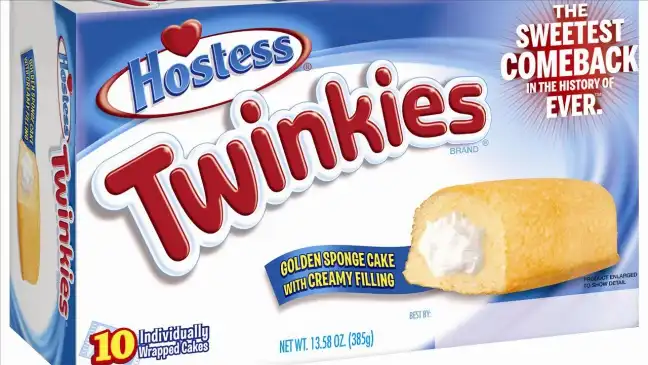
When it comes to food, the United States has its fair share of unique and sometimes controversial items. Twinkies, for example, have become a symbol of unhealthy American eating habits. But while they are popular in the United States, they are actually banned in other countries.
To understand why Twinkies are banned in some countries, it’s important to look at the ingredients. Twinkies are made from an artificial yellow dye called Yellow 5, or tartrazine. This dye is used to make the cakes look more appealing and to give them a bright yellow color. However, this dye has been linked to health concerns in some countries, including hyperactivity in children, asthma, and even cancer.
In addition to the yellow dye, Twinkies also contain a number of other synthetic ingredients and preservatives. These include high fructose corn syrup, trans fats, and partially hydrogenated oils. All of these ingredients have been linked to an increased risk of obesity, diabetes, and heart disease.
For these reasons, some countries have chosen to ban the sale of Twinkies. The United Kingdom, France, Denmark, and Sweden are just a few of the countries that have banned the sale of Twinkies due to health concerns. In the United States, Twinkies are still widely available, although they have been reformulated to contain fewer artificial ingredients.
1- Milk

Photo Credit : Pureshmilk
Perhaps the most surprising ban is on American milk. The US dairy industry is one of the largest and most successful in the world, with products available in grocery stores across the globe. However, the European Union and other countries have placed restrictions on American milk due to concerns about possible contaminants. For instance, some dairy products produced in the US contain rBST, a synthetic growth hormone that is banned in the EU. This substance has been linked to a range of health issues, including cancer.
Though it is surprising to see American food banned in other countries, it is important to recognize the different standards that different nations have for food safety. Ultimately, it is up to consumers to research the products they are buying and to make sure they are safe for their own health and the health of their families.
